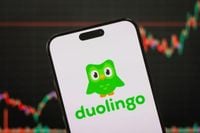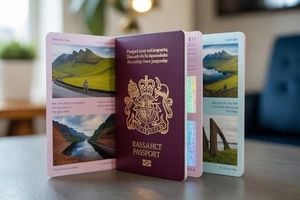In a world where language learning apps are becoming increasingly popular, two major players are vying for the attention of prospective learners: Babbel and Duolingo. Each app claims to offer unique advantages in helping users master new languages, but they take notably different approaches to education.
Babbel, currently offering a lifetime subscription for all 14 languages at the promotional price of $169.99 until May 18, 2025, emphasizes a more structured learning experience. According to Babbel, their language learning subscription not only aids in mastering new languages but also helps the brain rewire itself, forming new neural connections. This scientific backing is a significant selling point for many users who wish to enhance their cognitive abilities while learning.
The app features convenient 10- to 15-minute lessons that cater to learners at three levels: beginner, intermediate, and advanced. This flexibility allows users to either start from scratch or brush up on languages they may have previously studied. Furthermore, Babbel syncs progress across devices, enabling learners to switch between their smartphones and desktops seamlessly. Users can also download lessons for offline use, making it easy to continue learning without needing an internet connection.
With over 10,000 hours of online language education available, Babbel provides a comprehensive resource for learners. The app also employs advanced speech recognition technology to assist with pronunciation, which is crucial for those who want to sound fluent rather than like a tourist. Additionally, an AI Conversation Partner is available, allowing users to practice their conversation skills in real time, which can significantly enhance their learning experience.
On the other hand, Duolingo presents itself as 'the world’s best way to learn a language' and boasts a 'science-backed approach' that claims to deliver measurable results. The app has amassed tens of millions of users, which speaks to its popularity. However, some critics argue that Duolingo's effectiveness may not live up to its claims. An anonymous author expressed skepticism about the app's value, suggesting that "time wasted on Duolingo would be far better spent doing almost anything else." This sentiment raises questions about the app's actual efficacy in providing a robust language learning experience.
Duolingo's approach is notably gamified, incorporating elements of play to engage users. This can be appealing for those who enjoy a more relaxed and fun environment when learning a new language. However, the gamification may also lead to superficial learning, where users gain vocabulary without fully grasping grammatical structures or conversational nuances.
While both Babbel and Duolingo offer unique benefits, the choice between them ultimately depends on individual learning preferences. Babbel's structured lessons and focus on cognitive development may be better suited for serious learners, while Duolingo's playful approach might attract those looking for a casual way to pick up a few phrases.
As the language learning landscape continues to evolve, both apps are likely to adapt to meet the needs of their users. The competition between Babbel and Duolingo illustrates the growing demand for accessible and effective language learning tools in an increasingly globalized world.
Ultimately, whether one opts for Babbel's comprehensive curriculum or Duolingo's engaging gamification, the important thing is to find a method that works best for their personal learning style. With the right approach, anyone can embark on the exciting journey of learning a new language.




